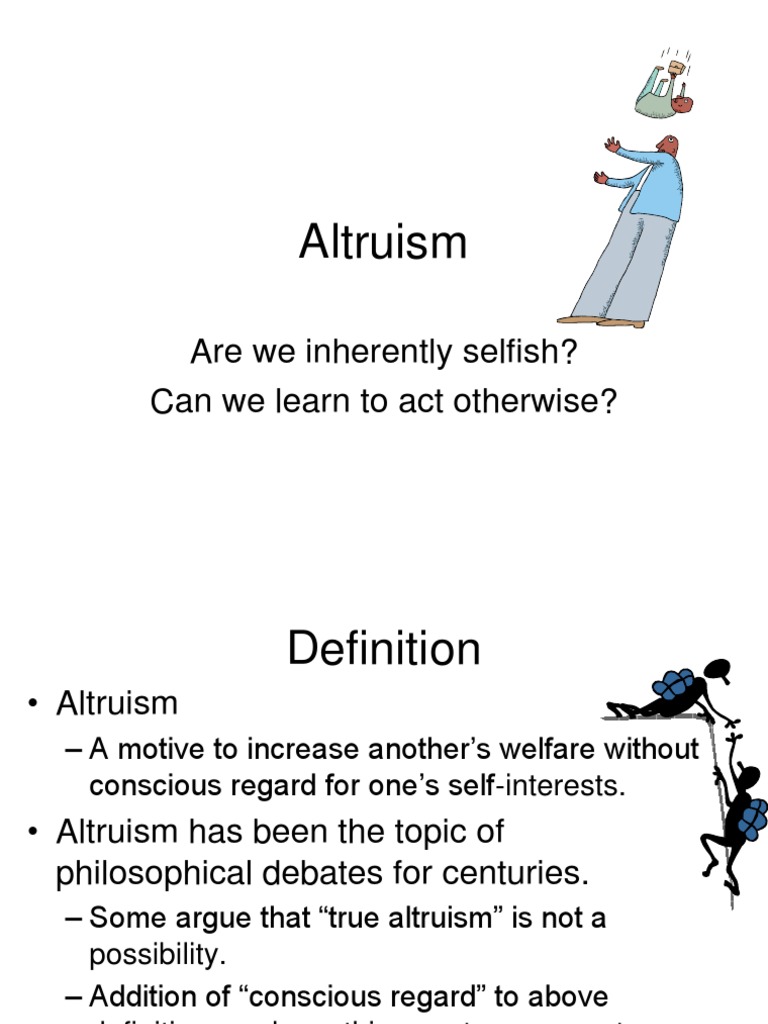Altruism serves as a cornerstone within Bahá’í teachings, intertwining the notion of moral growth with the profound connections individuals foster with the Divine. This exploration reflects not only the ethical dimensions of altruistic behavior but also encompasses the spiritual evolution that arises from such actions. The teachings advocate for a future where individuals cultivate selflessness, fostering a deeper relationship with God and humanity alike.
The principles enunciated in the Bahá’í Faith illuminate altruism as an intrinsic attribute of the human spirit, suggesting that each individual possesses the innate capacity for selfless acts. This belief posits that altruism transcends mere social etiquette; rather, it encapsulates a commitment to the welfare of others demarcated by profound compassion and empathy. By actively engaging in altruistic behavior, individuals navigate a spiritual journey that reinforces their connection with the Creator.
Understanding Altruism in a Bahá’í Context
Within the framework of Bahá’í teachings, altruism is not merely a social virtue; it is perceived as an essential principle of life. According to Bahá’í scripture, human beings are regarded as the manifestation of the Divine Will, instilling a sense of purpose and responsibility toward fostering the well-being of others. Altruism, therefore, entails recognizing the interconnectedness of all souls and acting in ways that uplift the collective spirit of humanity.
The Bahá’í prayers and writings emphasize the significance of self-sacrifice, love, and service to others. It is through the act of giving—be it time, resources, or compassion—that individuals purify their hearts, aligning themselves with the divine attributes of love and mercy. The teachings urge followers to eradicate prejudice and strive for unity, reflecting the belief that altruistic actions can lead to the manifestation of a one world order.
Moral Growth Through Selflessness
The journey toward moral growth is profoundly intertwined with altruistic behavior. Engaging in acts of service not only enriches the lives of recipients but also transforms the giver. Such acts offer the opportunity to transcend personal desires, encouraging the development of virtues such as humility, patience, and resilience. The Bahá’í writings advocate that moral development is an ongoing process, contingent upon the conscious decisions made in everyday interactions.
Engaging in altruistic endeavors cultivates a deeper understanding of the needs and struggles faced by others. This process fosters empathy and compassion, qualities deemed essential for moral elevation. Moral growth, as expressed in Bahá’í teachings, is characterized by the conscious effort to embody divine attributes—thus leading individuals on a path toward their highest potential.
The Role of Divine Connection
In the context of altruism and moral growth, the Bahá’í Faith elucidates the intricate relationship between individuals and the Divine. This connection serves as the bedrock upon which all virtues are built. It is through prayer, meditation, and reflection that followers nurture their spiritual bond with God, which in turn inspires altruistic intentions and actions. The consciousness of Divine presence emboldens individuals to act selflessly, as they become aware of the profound implications of their actions on the wider community.
This Divine connection is not merely theoretical—it is experiential. As individuals cultivate their spirituality, they begin to manifest the qualities of divine love, ultimately directing their energies towards humanitarian objectives. The teachings assert that to serve humanity is to serve God; therefore, altruism becomes an expression of worship in its purest form. In this connection lies the transformative power of love, enabling followers to transcend their egos and embrace a life dedicated to the betterment of others.
Altruism as a Catalyst for Community Building
The effects of altruistic behavior ripple outward, creating a foundation for community cohesion. As individuals engage in acts of compassion, they weave a fabric of interconnectedness and trust within their communities. The Bahá’í teachings underscore the imperative to foster unity amidst diversity, highlighting how collective altruism can dismantle barriers of prejudice and promote harmony among different cultures and backgrounds.
Moreover, community service initiatives grounded in the principles of Bahá’í teachings galvanize collaborative efforts to address societal challenges. Such initiatives encourage participants to work together to create solutions, reinforcing the notion that altruism has the power to effect systemic change. The teachings encourage an understanding of the community as a living entity, where the well-being of one is inseparable from the welfare of all.
Incorporating Altruism in Daily Life
Integrating altruism into the fabric of everyday existence is a vital aspect of Bahá’í practice. It calls for individuals to remain vigilant and proactive, seeking out opportunities to serve. Small, deliberate acts of kindness—whether a helping hand to a neighbor or participation in community projects—can substantially impact moral and spiritual growth.
Moreover, the Bahá’í approach encourages individuals to reflect on their intentions and actions regularly. Through this reflective practice, one can cultivate a deeper awareness of how personal conduct aligns with altruistic principles. The teachings assert that such mindfulness fosters spiritual insight, enabling a holistic integration of altruism into one’s way of life.
In conclusion, the Bahá’í teachings herald altruism as a vital mechanism for moral development and a profound connection with the Divine. It encourages individuals to recognize the inherent worth of each soul and to act accordingly, fostering a culture of service, compassion, and empathy. In doing so, followers not only fulfill their spiritual mandates but also contribute to the collective journey toward a unified and harmonious world.
